| Listing 1 - 10 of 29 | << page >> |
Sort by
|
Book
ISBN: 1633886530 Year: 2021 Publisher: Guilford, Connecticut : Prometheus Books,
Abstract | Keywords | Export | Availability | Bookmark
 Loading...
Loading...Choose an application
- Reference Manager
- EndNote
- RefWorks (Direct export to RefWorks)
"Anthill Economics puts forth an innovative and cross-disciplinary approach, asserting that the laws of nature and physics global economy as they are to animal ecosystems. This clearly written book full of illuminating ecological analogies gives readers an informed and engaging introduction to the cutting-edge field of biophysical economics that seeks to provide a more complete understanding of the global economy"--
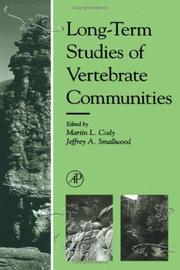
ISBN: 9780121780753 0121780759 9780080535623 0080535623 1281037060 9781281037060 9786611037062 Year: 1996 Publisher: San Diego Academic Press
Abstract | Keywords | Export | Availability | Bookmark
 Loading...
Loading...Choose an application
- Reference Manager
- EndNote
- RefWorks (Direct export to RefWorks)
This unique book synthesizes the ongoing long-term community ecology studies of fish, amphibians, reptiles, birds, and mammals. The studies have been conducted from deserts to rainforests as well as in terrestrial, freshwater, and marine habitats and provide valuable insight that can be obtained only through persistent, diligent, and year-after-year investigation.Long-Term Studies of Vertebrate Communities is ideal for faculty, researchers, graduate students, and undergraduates in vertebrate biology, ecology, and evolutionary biology, including ecology, natural history, and systemat
Multi
ISBN: 9780124076549 0124076548 1306213029 9781306213028 0124072283 9780124072282 Year: 2014 Publisher: London : Academic Press,
Abstract | Keywords | Export | Availability | Bookmark
 Loading...
Loading...Choose an application
- Reference Manager
- EndNote
- RefWorks (Direct export to RefWorks)
The classic literature on predation dealt almost exclusively with solitary predators and their prey. Going back to Lotka-Volterra and optimal foraging theory, the theory about predation, including predator-prey population dynamics, was developed for solitary species. Various consequences of sociality for predators have been considered only recently. Similarly, while it was long recognized that prey species can benefit from living in groups, research on the adaptive value of sociality for prey species mostly emerged in the 1970's. The main theme of this book is the various ways that predators
Animal psychology and neurophysiology --- Predation (Biology) --- Animal communities.
Book
ISBN: 0471815284 Year: 1987 Publisher: New York : Wiley,
Abstract | Keywords | Export | Availability | Bookmark
 Loading...
Loading...Choose an application
- Reference Manager
- EndNote
- RefWorks (Direct export to RefWorks)
Animal communities --- Paleontology --- Reefs --- Paléontologie --- Récifs
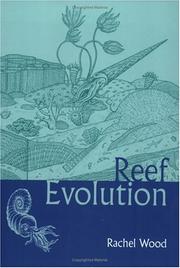
ISBN: 0198549997 0198577842 Year: 1999 Publisher: Oxford ; New York : Oxford University Press,
Abstract | Keywords | Export | Availability | Bookmark
 Loading...
Loading...Choose an application
- Reference Manager
- EndNote
- RefWorks (Direct export to RefWorks)
Reef ecology. --- Reefs --- Animal communities --- Paleontology --- Ecologie des récifs --- Récifs --- Paléontologie --- Animal communities. --- Paleontology. --- Reefs. --- Ecologie des récifs --- Récifs --- Paléontologie
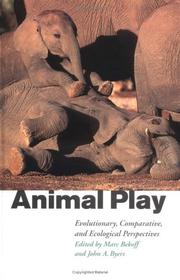
ISBN: 0521586569 9780521586566 9780511608575 9780521583831 Year: 1998 Publisher: Cambridge Cambridge University Press
Abstract | Keywords | Export | Availability | Bookmark
 Loading...
Loading...Choose an application
- Reference Manager
- EndNote
- RefWorks (Direct export to RefWorks)
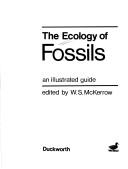
ISBN: 0715609440 0262131447 Year: 1978 Publisher: London : Gerald Duckworth,
Abstract | Keywords | Export | Availability | Bookmark
 Loading...
Loading...Choose an application
- Reference Manager
- EndNote
- RefWorks (Direct export to RefWorks)
Animal communities. --- Paleoecology. --- Paleontology, Stratigraphic. --- Paleoecology --- Paleontology, Stratigraphic --- Animal communities --- Communities, Animal --- Animal ecology --- Biotic communities --- Stratigraphic paleontology --- Paleontology --- Palaeoecology --- Ecology --- Paleobiology --- Paléoécologie
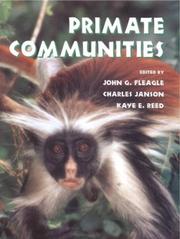
ISBN: 1107114667 1280429356 9786610429356 0511174993 0511039956 0511155085 0511303815 0511542380 0511050283 9780511039959 9780511155086 9780511174995 9780511542381 9780521620444 0521620449 9780521629676 0521629675 Year: 1999 Publisher: Cambridge Cambridge University Press
Abstract | Keywords | Export | Availability | Bookmark
 Loading...
Loading...Choose an application
- Reference Manager
- EndNote
- RefWorks (Direct export to RefWorks)
Although the behaviour and ecology of primates have been more thoroughly studied than that of any other group of mammals, there have been very few attempts to compare the communities of living primates found in different parts of the world. In Primate Communities, an international group of experts compares the composition, behaviour and ecology of primate communities in Africa, Asia, Madagascar and South America. They examine the factors underlying the similarities and differences between these communities, including their phylogenetic history, climate, rainfall, soil type, forest composition, competition with other vertebrates and human activities. As it brings together information about primate communities from around the world for the very first time, it will quickly become an important source book for researchers in anthropology, ecology and conservation, and a readable and informative text for undergraduate and graduate students studying primate ecology, primate conservation or primate behaviour.
Primates. --- Animal communities. --- Communities, Animal --- Animal ecology --- Biotic communities --- Quadrumana --- Mammals

ISBN: 9780121780753 0121780759 9780080535623 0080535623 1281037060 9781281037060 9786611037062 Year: 1996 Publisher: San Diego Academic Press
Abstract | Keywords | Export | Availability | Bookmark
 Loading...
Loading...Choose an application
- Reference Manager
- EndNote
- RefWorks (Direct export to RefWorks)
This unique book synthesizes the ongoing long-term community ecology studies of fish, amphibians, reptiles, birds, and mammals. The studies have been conducted from deserts to rainforests as well as in terrestrial, freshwater, and marine habitats and provide valuable insight that can be obtained only through persistent, diligent, and year-after-year investigation.Long-Term Studies of Vertebrate Communities is ideal for faculty, researchers, graduate students, and undergraduates in vertebrate biology, ecology, and evolutionary biology, including ecology, natural history, and systemat
Vertebrates. --- Animal communities. --- Communities, Animal --- Animal ecology --- Biotic communities --- Vertebrata --- Chordata
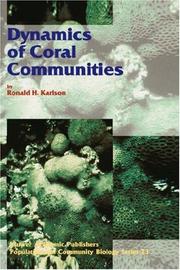
ISBN: 0412795507 Year: 1999 Publisher: Dordrecht : Kluwer academic,
Abstract | Keywords | Export | Availability | Bookmark
 Loading...
Loading...Choose an application
- Reference Manager
- EndNote
- RefWorks (Direct export to RefWorks)
This book focuses on the dynamical processes influencing the structure of coral communities, some of the most biologically diverse communities on earth. A variety of biological and physical processes operating across an enormous range of spatiotemporal scales are highlighted (e.g., niche partitioning, biological interactions, disturbance phenomena, large-scale tectonic, eustatic, climatic, and oceanographic processes). The focus on the community provides a framework for presenting some of the best examples from the literature using multiple taxonomic groups (e.g., corals, fishes, encrusting invertebrates). The theoretical background and relevant evidence are provided for several important processes: the influence of keystone species on community stability, ecological succession, interspecific competition, consumer-resource interactions, disturbance-mediated species coexistence, saturation, limited membership, and regional enrichment. The merits of integrating the local perspective, emphasizing niche theory and biological interactions, with a larger historical-geographical perspective are discussed for coral communities in a biogeographical context.
Animal communities. --- Coral communities. --- Corals --- Geografie --- Ecology. --- Remote Sensing --- Remote Sensing Toepassingen.
| Listing 1 - 10 of 29 | << page >> |
Sort by
|

 Search
Search Feedback
Feedback About UniCat
About UniCat  Help
Help News
News